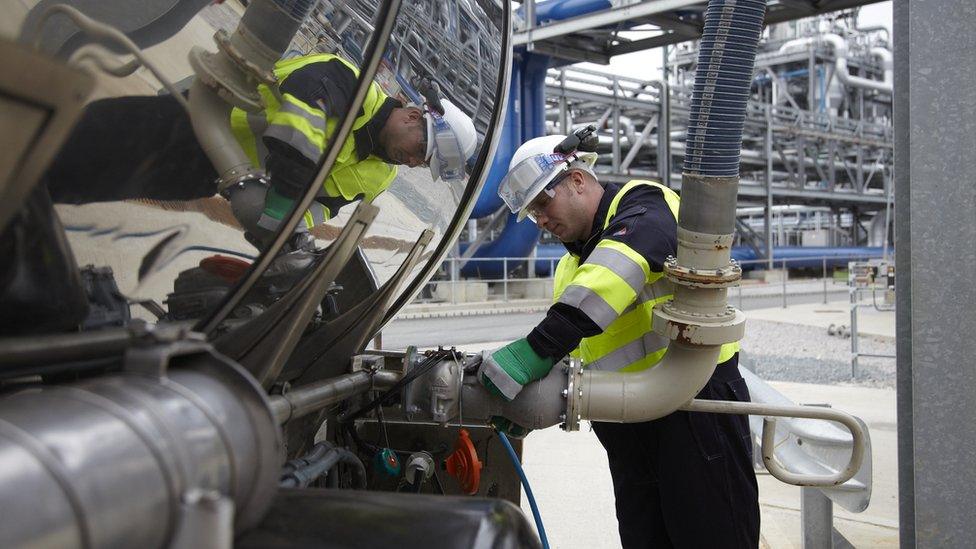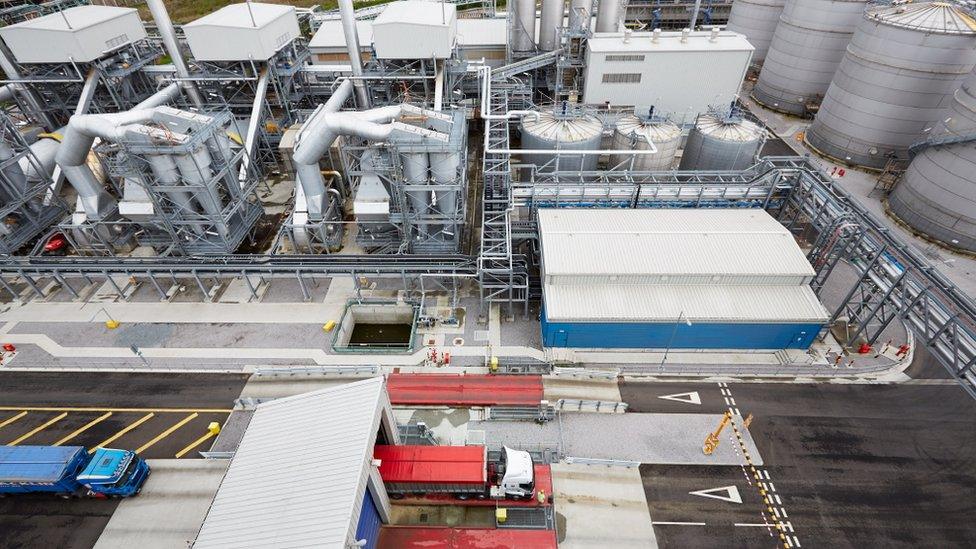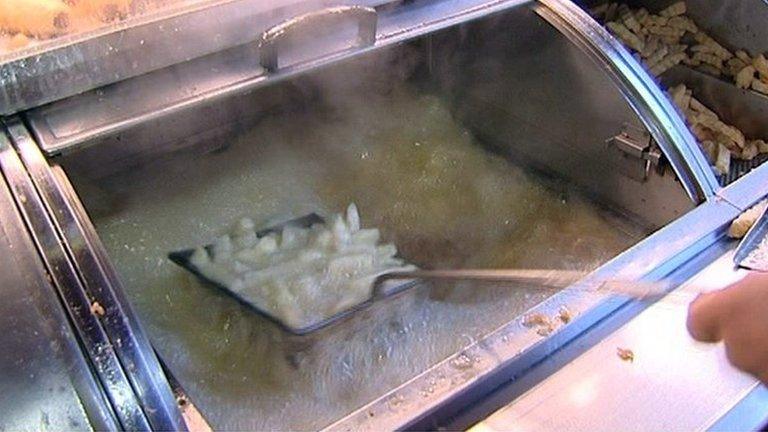Biofuels plant in Hull stops production and may not reopen
- Published
- comments

The UK's biggest bioethanol producer has stopped production at its East Yorkshire plant, blaming government "inaction".
Vivergo Fuels said there was "no guarantee" production would recommence at the Hull facility.
It said losses had risen due to government delays in making oil companies use 10% bioethanol in petrol.
The Department for Transport said it was "on track" to double the biofuels supply by 2020.
Bioethanol is a renewable transport fuel which is blended with petrol to cut carbon emissions. It is made from organic matter including sugar, maize or, in the case of Vivergo, wheat.
Vivergo's managing director, Mark Chesworth, told the BBC's Today programme that thousands of people could be affected by the stoppage: "For 150 skilled workers on the banks of the Humber and the 3,000 people we support across the supply chain, many of them UK farmers, it's a very worrying time for the business."
Petrol sold in the UK contains about 5% bioethanol, which Vivergo says results in carbon emissions savings equivalent to taking 180,000 cars off the road.
Vivergo has called on the government to increase the amount of bioethanol in petrol to 10% by introducing a fuel called E10.

The company - part of Associated British Foods - said that would mean emissions savings equivalent to taking 700,000 cars off the road.
It said it had invested heavily in its Hull plant in the expectation ministers would introduce new rules forcing oil companies to increase the percentage of bioethanol in petrol.
However, it said the delay in imposing that rule had meant that Vivergo's losses had increased, meaning it made "more sense" to stop production.
Mr Chesworth said there had been too much political instability to bring the new rules in: "There's been a series of delays in progressing that policy. Two general elections in the last two years, the EU referendum, four transport secretaries in the last four years - none of that helps to progress the policy."
The company plans to carry out annual maintenance during the shutdown to "maintain employment levels".
Vivergo employs 150 people, split between its plant in Hull and head office in Hessle, East Yorkshire.
'On track'
In September, the Department for Transport said, external it would increase the use of renewable fuels in petrol and diesels from 4.75% to 9.75% by 2020 - known as the Renewable Transport Fuel Obligation.
"This will double the use of renewable fuels, reduce our reliance on imported fossil diesel, and deliver emissions savings equal to taking another one million cars off the road," it said.
"We are working closely with the industry and motoring groups to consider the issues around a potential introduction of E10 and the role government can play in this."
Vivergo said it had welcomed the government's proposals to increase the use of renewable fuels, but "remained concerned that there is no roll-out framework for E10 in the UK, the absence of which could have serious consequences for the long-term future of the UK bioethanol industry".
Mr Chesworth added: "If the government does not increase the blend level to 9.75% and actively support the introduction of E10, the industry will be left in an unsustainable situation with excess capacity and there are likely to be casualties.
"I am not predicting that we will be one of them but with an unclear restart date, it is clearly concerning for all involved with Vivergo Fuels."
- Published14 July 2017
